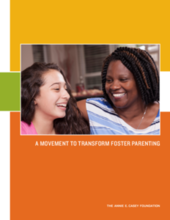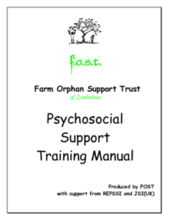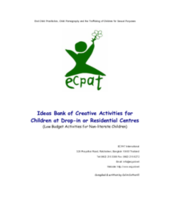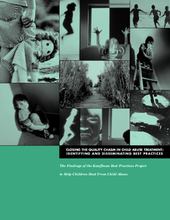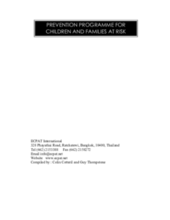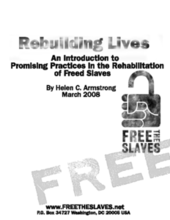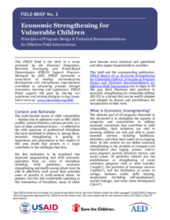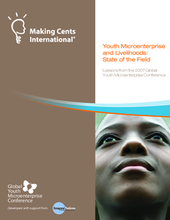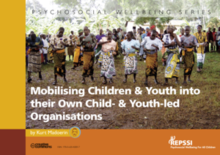This section provides examples, tools, and manuals on effective methods of supporting family-based care (e.g. homes visits, use of local resources, etc).
Displaying 1 - 10 of 23
This report explores ways for public agencies to ensure that children receive the care they need by enlisting more volunteers to step forward as foster parents and by encouraging the extraordinary individuals who have already answered the call to continue their commitment to care. The report identifies three major themes for engaging and empowering foster parents: ensuring quality caregiving for children; forging strong relationships; and, finding and keeping more amazing caregivers.
A training manual on supporting children and young people who have been orphaned or affected by HIV and AIDS. It provides exercises for caregivers and other adults on understanding how children experience loss and grief and on the types of social and psychological supports such children will need.
A compilation of low-budget activities (e.g. play, sport, games, arts/crafts, music/movement, drama, reading/listening, and creative expression) for non-psychosocial professionals working at drop-in or residential centers.
An overview of considered best practices in therapy for child survivors of physical and sexual abuse.
Guidance on setting up prevention programs to reduce child protection risks to children and young people, and in particular to prevent commercial sexual exploitation.
A manual for starting and improving rehabilitation and recovery services for freed slaves, including child victims of slavery, trafficking, the worst forms of child labor, and forced marriages.
A brief illustration of ten economic strengthening tools that can be adapted to address child vulnerability due to HIV/AIDS, conflict, natural disaster, extreme poverty, or other contexts.
A report from the first-ever Global Youth Microenterprise Conference in 2007. This publication provides insights into the challenges facing youth livelihood development and its benefits for young people and communities.
An overview of the development and benefits of child and youth-led organizations across Tanzania’s Kagera region, primarily for children who have lost one or both parents.
Overview of the role of communities in identifying and protecting vulnerable children, as well as guidance for organizations on how to mobilize and support community groups.

